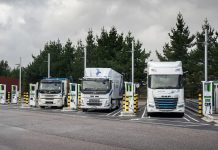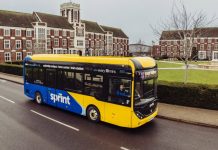A study involving Honda, Salford University, Good Energy and Upside Energy suggests vehicle-to-grid (V2G) revenues are eaten up by high hardware costs. As such, smart charging may deliver much of the available benefit for lower outlay – at least within domestic premises.
The Haven trial looked at savings or revenues available to energy suppliers and householders from co-ordination of onsite solar, storage and electric vehicles.
A key finding was that current control systems are not up to scratch in terms of co-ordinating multiple technologies.
It also found that V2G rewards are pretty low, because the trial assumed cars are not plugged in during the day when drivers are at work.
For suppliers – which can tap energy market arbitrage, some network cost avoidance, flexibility services such as frequency response and the balancing mechanism – modelled benefits per household per annum topped out at £500. That figure was based on optimal co-ordination of PV, smart hot water storage, battery storage units and electric vehicles.
For householders, which are unable to access all of those revenue streams, the maximum benefit was £300, derived from using all the assets to maximise consumption of PV.
“Overall, the results reveal that while significant revenues are available from coordinated control of domestic storage assets, additional revenues available from a V2G/V2H-enabled EV are modest as despite its large energy capacity, the EV is often absent from the home,” per the report.
“This makes the investment case challenging for V2G/V2H-enabled chargers until hardware costs are reduced. In the meantime, a portion of these revenues may be better accessed through modulation of EV charging times.”
See the report summary here.
Related stories:
EVs: Co-ordinate charging or blow CO2 budgets and risk new ‘super peak’
Kaluza: EVs can displace large scale battery storage
Vehicle-to-grid: Are we nearly there yet?
Calling all fleet operators: Free vehicle-to-grid charging infrastructure
Vehicle-to-grid study suggests £400 annual revenue per electric vehicle
Nissan: 2019 a “breakthrough year” for vehicle-to-grid
Follow us at @EnergystMedia. For regular bulletins, sign up for the free newsletter.




Hi,
My doctoral study into EVs on LV systems shows managed charging benefits the local network in a ratio of 3 to 1, local managed charging vs V2G i.e. modulation of EV loads has 3 times the effectivity of V2G in terms of benefiting the LV system.
V2G is still needed, to cope for times when there is low headroom i.e. so to charge other EVs.